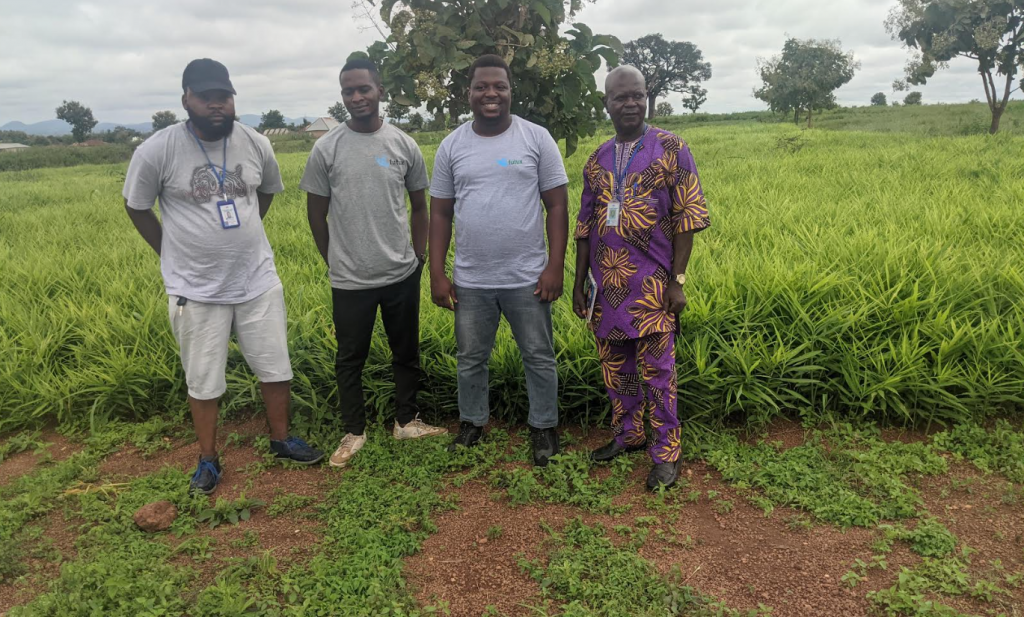In the most remote areas of developing countries, there are smallholder farmers working assiduously to make food available for his or her family and a little commercial quantity for income. This is the main reason smallholder farmers are the bedrock of agriculture in developing countries, and a key actor in achieving food security, which implies that there is a need for continuous learning in improving their farming practices.
This is important in order to improve their productivity and at the same time, increase output. These practices to be improved are generally known as Good Agricultural Practices (GAPs). According to FAO, GAPs are a “collection of principles to apply for on-farm production and post- production processes, resulting in safe and healthy food and non-food agriculture products, while taking into account economic, social and environmental sustainability”. Simply put, GAPs are encompassing (everything agriculture) focusing on food safety, farmers or farm workers' welfare, traceability, environment and livestock welfare amongst others.
In reality, the essence of GAPs is to ensure sustainability; human race should not go into extinction as a result of hunger nor other factors contributed by activities in the agricultural sector. Therefore, smallholder farmers need to embrace GAPs at the different stages of production in order to ensure that activities carried out are well thought of (having minimal negative effects) and do not pose any negative impacts on the environment, food or the people.
Hence, training and retraining of smallholder farmers should be a top priority of organizations working with farmers and farmers' groups in order to build their capacity to achieve sustainability (economic, social and environment).
In conclusion, achieving sustainability should not be limited to food alone; rather a holistic approach should be adopted. Also, sustainability is a MUST that we MUST endeavor to attain as it provides leverage to reduce the impact of climate change on production activities when adopted by the farmers. It is a journey we must be ready and capable to go through with the right mindset and necessary skills, and never a destination. Therefore, investing in providing the appropriate information at the right time to the farmers is a noble investment for both the present and the future as food security is guaranteed!
Yours-in-Service
Babatunde
In reality, the essence of GAPs is to ensure sustainability; human race should not go into extinction as a result of hunger nor other factors contributed by activities in the agricultural sector. Therefore, smallholder farmers need to embrace GAPs at the different stages of production in order to ensure that activities carried out are well thought of (having minimal negative effects) and do not pose any negative impacts on the environment, food or the people.
Hence, training and retraining of smallholder farmers should be a top priority of organizations working with farmers and farmers' groups in order to build their capacity to achieve sustainability (economic, social and environment).
In conclusion, achieving sustainability should not be limited to food alone; rather a holistic approach should be adopted. Also, sustainability is a MUST that we MUST endeavor to attain as it provides leverage to reduce the impact of climate change on production activities when adopted by the farmers. It is a journey we must be ready and capable to go through with the right mindset and necessary skills, and never a destination. Therefore, investing in providing the appropriate information at the right time to the farmers is a noble investment for both the present and the future as food security is guaranteed!
Yours-in-Service
Babatunde
Related




A very important step in agricultural development is knowledge of your crops, your land and to optimise your input given the local circumstances.
An other element to consider is organic matter management. It is often thought that the more stable and organic matter is the better it is for the water holding capacity and co2 fixation of the soil.
There is however a controversial element that is often neglected. Stabile organic matter does not generate soil life. And soil life is required for resilience of a durable agricultural production.